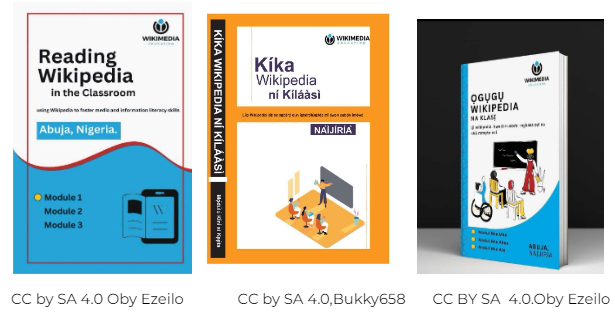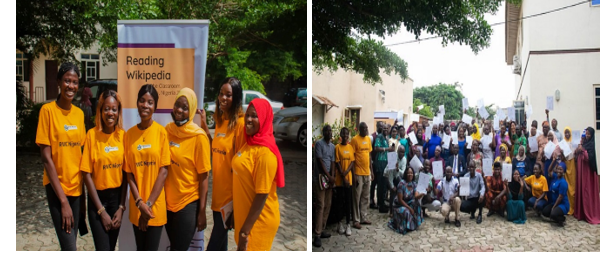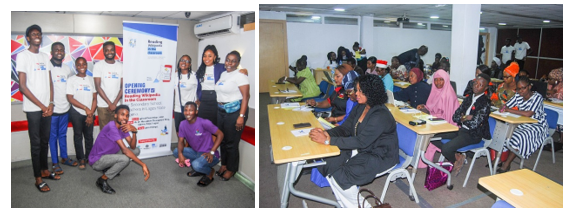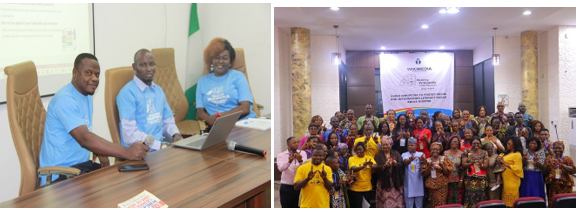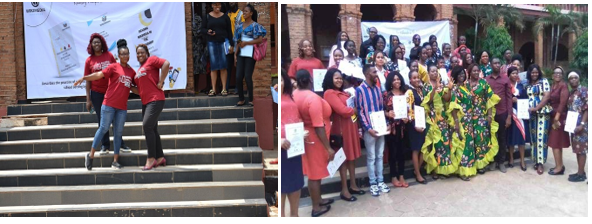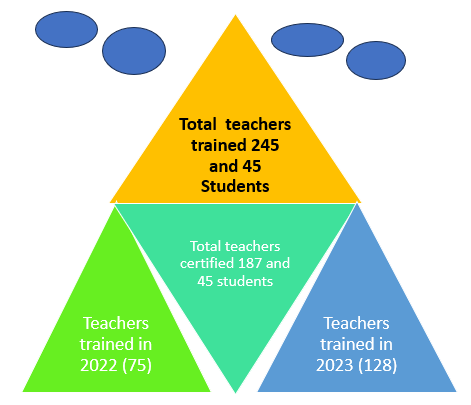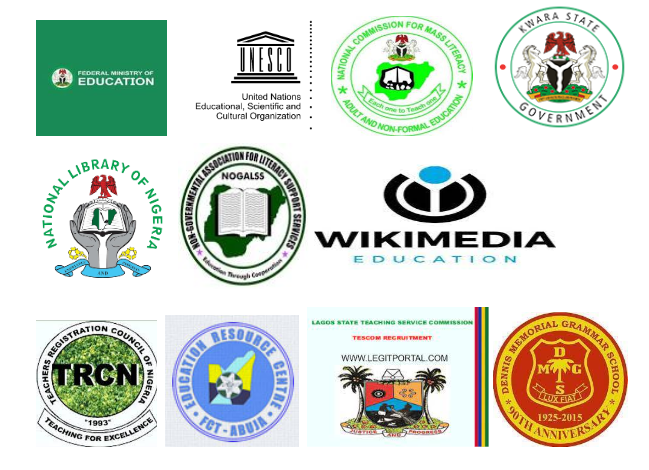Reading Wikipedia in the Classroom is the Wikimedia Foundation’s flagship teacher training programme that supports educators and students in acquiring critical media and information literacy skills for the twenty-first century such as:
- Understanding how information is produced.
- Learning how to access and evaluate content online.
- Appreciating the biases and knowledge gaps in the information they consume.
- Improving teachers media and information Literacy skills.
Like many developing nations, Nigeria faced and is still facing some challenges with its educational system that need to be resolved. For many years, the four-level system of Education – Creche, Basic, Secondary, and Tertiary Education has mostly been based on books, chalkboards, lectures and in-person activities that were carried out in formal settings (Classrooms, Libraries, Halls, etc). With the advent of technology which revolutionized and improved service delivery in different sectors including education, the system of teaching and learning requires substantial change through the introduction of various aspects of digital learning and personalized education. Adoption of technology for teaching was enhanced during the covid-19 period when schools were forced to close and some that had technological capacity started teaching students online.
Reading Wikipedia in the Classroom Programme (RWIC) enables teachers to provide pupils with a high-quality online education. It is one potential way to improve the educational experience of both teachers and students for the following reasons:
- It is a pedagogical tool for critical engagement with teachers and students.
- It encourages collaboration between teachers developing innovative classroom curriculum and lesson plan to enhance teaching and learning in the classroom.
- It promotes media and information literacy skills for teachers to access, evaluate, and create information on Wikipedia.
- It develops active contributors to Wikipedia
- It introduces the concept of open source ideology in the school system
Measures taken to introduce RWIC in Nigeria
The RWIC programme has a teachers guide which is a manual developed by Wikimedia Foundation used to teach teachers in the programme. The Teacher’s Guide has 3 modules. Modules 1 discussed assessing information; module 2 discussed evaluating information while module 3 discussed creating information. We modified the Teachers Guide by including some local content and translated it to the Yoruba language in 2022. We further updated the modules of the Teachers Guide by adding additional information, making it more colourful; and translated it to the Igbo Language in 2023.
In 2022 the first implementation of RWIC was carried out in Kwara State, Nigeria Led by Bukola James. In that programme, a total of 75 Teachers from 35 secondary schools were trained. At the end of the training in July 2022, 60 teachers were certified.
Later, 3 teachers that were certified in the programme conducted another RWIC progamme for 45 students who are in senior secondary levels. This programme also took place in Kwara State in 2022.
In 2023 a series of implementations in different parts of the country, starting with Lagos state Nigeria with Kemi Makinde as the Lead Trainer. 50 Teachers from 36 secondary schools in Lagos State were trained and 36 were certified at the end of the first implementation in February 2023.
In Abuja the second implementation was done by the collaborative effort between three certified trainers Oby Ezeilo as Lead Trainer, Ismail Atiba and Clement Dike. 70 Teachers from 51 secondary schools in the 6 Area councils of Abuja were trained and certified 52 at the end of the first implementation in April 2023.
In Onicha Anambra State we had our third implementation with Oby Ezeilo as Lead trainer, Jane onuchukwu and another certified trainer Ngozi Osuchukwu served as the implementation team. Over 50 Teachers from 8 secondary schools in Onicha Anambra were trained and 39 of them were certified at the end of the first implementation in July 2023.
Between July 2022 and July 2023. A total of 245 teachers were trained and have benefited form the RWIC programme in Nigeria while 187 completed the training and all the necessary criteria required for certification and were certified.
Challenges
Lack of digital literacy: Most teachers were not familiar with navigating online resources like Wikipedia.
Lack of Internet and Infrastructure: Access to the internet may be restricted, unreliable or unavailable in many areas of Nigeria. Some schools lack the infrastructure required to enable ongoing online education.
Regulatory, Policy and School Structure: In public schools, students are not allowed to come to school with digital device like mobile phones and laptops but in Private schools revice is the case.
Other challenges were IP blocks, Teachers absence at physical events due to removal of fuel subsidy and political crisis of presidential election, Securing partnerships with key Education Stakeholders, and Limited funding.
Our success story
Collaboration and Partnership: Partnering with some stakeholders gave us leverage in getting the right candidates for the program. It also helped in identifying what the partners need to help do in order to sustain the program , one of which is providing infrastructures that will help bridge the digital dived in private and public schools and documentation of the program in the government facilities. While collaborating with each other and our partners provided improved valuable ideas and structured division of labour . Below are Some of our Partners.
Cultural Relevance: Using the local language in instruction increased the course’s relevance, effectiveness and teachers’ mastery of the subject matter.
Wiki Clubs: Establishment of Wiki clubs in Kwara, Abuja, Onitcha and Lagos were one of our success stories.
EduWiki Nigeria: In order to grow our RWIC Community we are thrilled to establish the EduWiki Nigeria. A diverse Community of Certified trainers, volunteers, educators, students, and professionals, who are happy and eager to smoothly integrate Wikipedia into Nigeria’s educational system while creating a culture of knowledge sharing, skill development, and lifelong learning.

Can you help us translate this article?
In order for this article to reach as many people as possible we would like your help. Can you translate this article to get the message out?
Start translation
